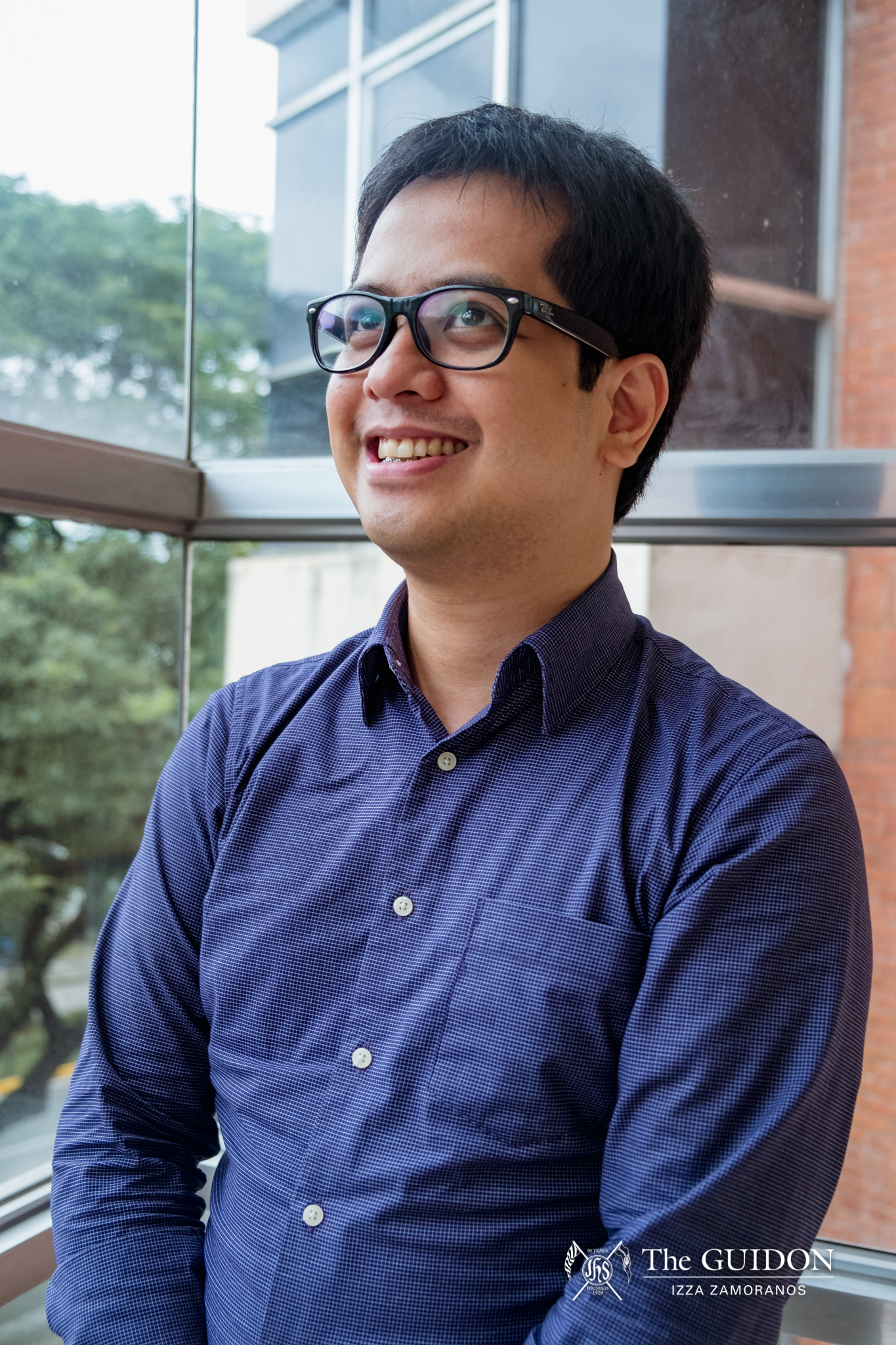
Photo by Izza Zamoranos
Whether through research or the occasional stint on network news, Arjan Aguirre, MA (Department of Political Science) constantly seeks ways to make a difference in the sociopolitical sphere. He mainly provides policy recommendations to legislators based on his field work. All this activity outside the classroom is channelled back into it, with his lessons in class often drawing from his personal experience as an active political scientist.
I love studying about elections. It was my passion since I was a student. I love reading about comparative politics. Comparative politics is a subfield of political science wherein we compare systems, electoral systems. I do research on that area and whenever I write something about [those] issues, I always make sure it discusses a particular real issue in our country.
Of course, I can study so many things that interest me, but at the end of the day, the point is that, will they matter? Will they affect people? Number two, the point is for what, ‘di ba? In gauging my work, ‘yun ang binabalikan ko (that is what I go back to). Is this what I love to do? Will this affect people? Will this change the situation? If my work can accomplish this, then okay siya sa akin (with me).
There are things that are so difficult to teach inside the classroom at ito ‘yung mga bagay na kailangan i-practice (and these are the things that must be learned through practice). Ano [ang mga] ‘yan? (What are these things?) Advocacy work. Theories, things you can find in a textbook—sometimes they don’t talk about the things [that] happen. They can only give you guidance. When it comes to engaging real issues like poverty here in the Philippines, theories can only give you principles, values, and how they affect people. Pero ‘yung real-life situation, ‘yan ang kailangan natin i-experience. (But the real-life situation, that is what we need to experience.)
As a researcher, the point is that you must also make sure your research [reaches] the appropriate people–people who would need your work. Consultant din ako ng (I am also a consultant of) NGOs [non-governmental organizations], politicians. Kung akala ninyo na (If you think that) we only teach, no. Teaching is an interactive thing, so [ka-]interact namin kayo kasi meron kaming alam, meron kaming nagawa (We interact with you because we know things and we have done things).
I always ask my students to read a set of readings, but at the end of the day the readings are only guides. Our discussions are what really matter. Doon ko nasha-share ang research ko at ‘yun ang maganda sa work namin dito sa Ateneo (That is where I share my research and that is the beauty of our work here in Ateneo).
You must be a role model to your students. Whenever you say something, do it. Pakita mo sa kanila na (Show them that) you walk the talk. That is really important, especially in the eyes of your students. You can’t appear to be a hypocrite. You discuss social justice and the importance of this and that pero ‘di mo naman ginagawa (you don’t actually put anything into practice).
We should act, especially whenever there's a situation that demands action. Halimbawa, may nangyari, may libing si Marcos. Ako, ‘di ko na kailangan mag-lecture, nag-rally ako dahil mali. Makikita ng students na ang tinuturo namin di lang teorya. [These issues] are real and they matter.
(For example, something happened, the burial of Marcos. On my end, I didn’t need to lecture the students on it; I rallied because it was wrong. The students then see that what we teach isn’t all theory. [These issues] are real, and they matter.)